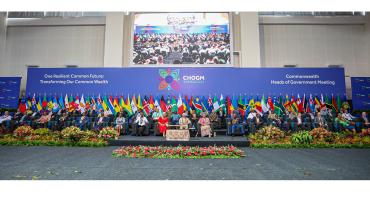To commemorate International Women’s Day, the Commonwealth’s Gender Section hosted an event at Marlborough House entitled ‘Progress for Women and the Vote in the Commonwealth’.

To commemorate International Women’s Day, the Commonwealth’s Gender Section hosted an event at Marlborough House entitled ‘Progress for Women and the Vote in the Commonwealth’. The event – attended by educators, lawyers, policymakers, activists, youth workers and officials of Commonwealth member countries – aimed to celebrate the achievements, determination and courage of women and girls across the Commonwealth in struggle for democracy, development and peace. It called for absolute gender equality in all spheres and at all levels.
The event was opened by the Secretary-General of the Commonwealth, Patricia Scotland, who highlighted the role of the Commonwealth in strengthening the progress for gender quality. “Recognition and advancement of the rights of women is inextricably linked to our Commonwealth priorities of inclusiveness and empowerment, and of social, economic and political development,” she said.
The Secretary-General added: “Our campaign towards equal rights for women has resonance with other campaigns against injustice and discrimination – including those against child, early and forced marriage, people trafficking, modern slavery, female genital mutilation, and other forms of sexual or domestic violence.”
IWD Event
Her opening remarks were followed by a keynote address by Helen Pankhurst from CARE International, who spoke of the power of merging activism in words and deeds: “1.2 billion women of the Commonwealth remain underrepresented in the political processes. As we move forward in the UK and across the Commonwealth, we need our politicians to be as diverse and reflective of our societies as possible, and also for our procedures to be transparent. We are at our strongest when the voices of the those most representing the marginalized and silenced amongst us are centre stage and in the corridors of power,” she stated.
The panel included the High Commissioners of New Zealand, Trinidad and Tobago and Rwanda to the UK. They spoke about best practices in their countries that not only provided equal opportunities to women and girls, but also enabled an environment to fully exercise those opportunities without discrimination. The discussion concluded with an informal question and answer session in which the panellists encouraged attendees to carry forward their messages about the way people perceive the roles and rights of women.



